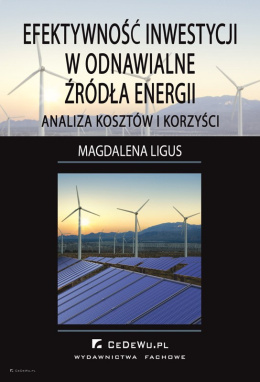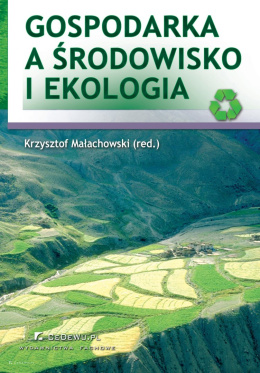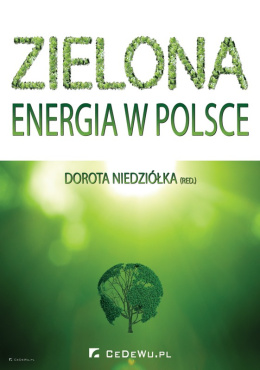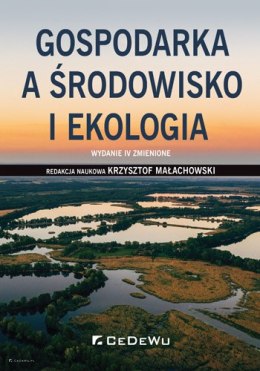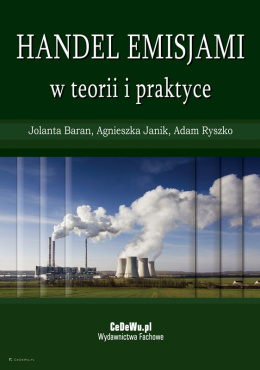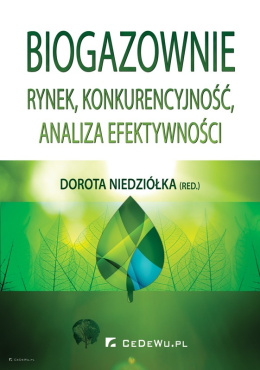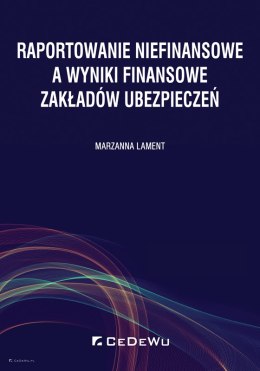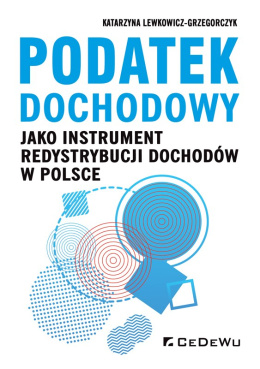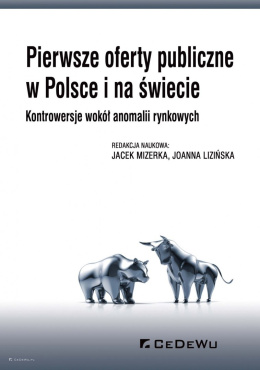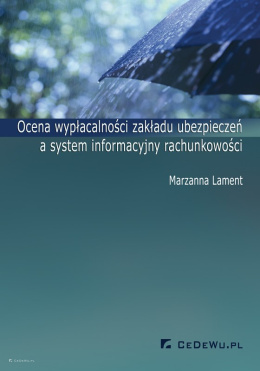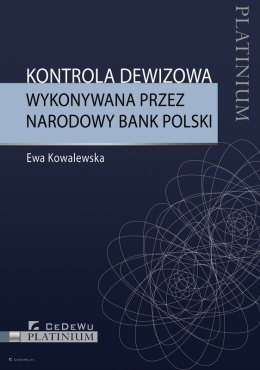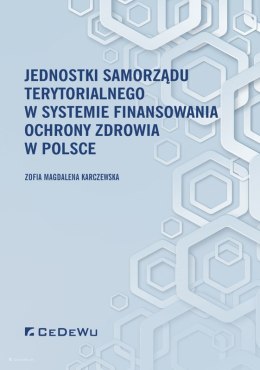-
Shopping cart is empty
-
x

-
Shopping cart is empty
-
x
- Categories
-
Carbon Funds in Climate Policy
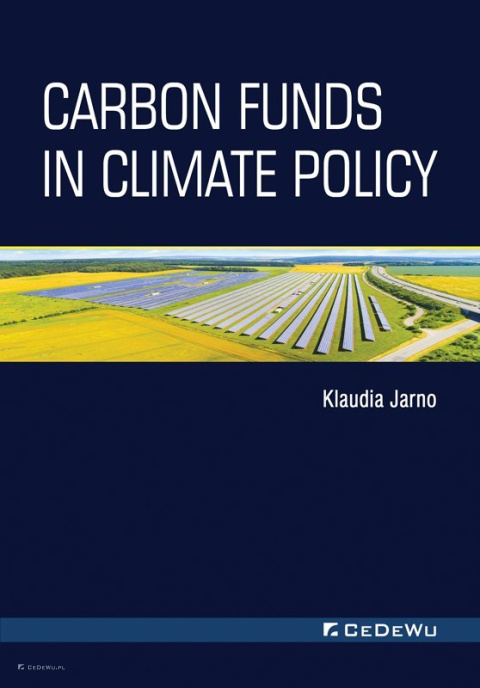
The book offers a deep insight into the subject of carbon funds - investment vehicles aimed predominantly at acquiring carbon credits. It is primarily concerned with selected aspects of the organisation and activity of carbon funds which the public authorities invest in. It also explores the effectiveness of investment decisions made by carbon funds compared with all the other entities purchasing carbon credits. What is more, the Author discusses the presumptions and provisions of the European Union's and global climate change policy, and thus, shows an overall picture of the environment that carbon funds operate in. A great advantage of the book is that it adopts an interdisciplinary approach to the subject of carbon funds' organisation and activity. The following are excerpts from the reviews referring to the Ph.D. dissertation that this book is based on: "[...] the selection of the problem, as well as the scope of the conducted analyses and research, is innovatory, creative, and a
| Shipping within | 24 hours |
| The bar code | |
| ISBN | 978-83-7556-937-7 |
| EAN | 9788375569377 |
The following are excerpts from the reviews referring to the Ph.D. dissertation that this book is based on: "[...] the selection of the problem, as well as the scope of the conducted analyses and research, is innovatory, creative, and applicable to the development of science, as well as to business practice."
Professor Agnieszka Alińska, Warsaw School of Economics
"It should be appreciated that the Author decided to devote her work to a field that is poorly represented in economic publications in the Polish publishing industry as there still is scarcity of economic studies referring to the field of climate protection and environmental policy."
Professor Grzegorz Gołębiowski, the University of Finance and Management in Warsaw
"In Poland, no other studies analyze the organizational models and effectiveness of carbon funds of public nature in such a comprehensive way, or give such a detailed picture of the problem. As a matter of fact, this problem is not sufficiently covered in the literature and research work of other countries, either. Therefore, we can state that this dissertation is a valuable complement to and a development of the knowledge of climate policy, its subjects and instruments."
Professor Zbigniew M. Karaczun, Warsaw University of Life Sciences
List of Acronyms 9
Acknowledgments 11
Preface 13
Chapter 1
The Economics of Climate Policy - the Theoretical Framework 17
1.1. The Ecologisation of Economics vs. the Economisation of the Natural Environment 17
1.2. Climate Policy in Regard to Environmental Policy Conducted by the State 23
1.3. External Environmental Costs 25
1.4. Internalisation of External Environmental Costs 30
1.5. The Tools for the Internalisation of the External Cost Used in Practice 42
1.6. The Organisation of Trade and the Types of Markets for Tradable Permits 43
Chapter 2
The Legal and Organisational Aspects of the Global and the European Union's Climate Policy 47
2.1. The United Nations Framework Convention on Climate Change and the Kyoto Protocol to the United Nations Framework Convention on Climate Change 48
2.2. The Assumptions and Principles of the Global Climate Policy Under the UNFCCC and the Kyoto Protocol 64
2.3. The Paris Agreement - a New Approach to Global Climate Policy 66
2.4. The Legal Aspects and the Development of the European Union's Climate Policy 72
2.5. Climate Policy in the EU Strategy and Programming Documents 82
2.6. The Characteristics of Tradable Permits for GHG Emissions 85
2.7. The Organisation of Trading in Tradable GHG Allowances Under the Kyoto Protocol and the EU ETS 86
2.8. The Comparison of Global and EU Climate Policy 94
Chapter 3
Project-based Mechanisms Under the Kyoto Protocol 101
3.1. The Premises of the Construction of the Kyoto Protocol Flexibility Mechanisms 101
3.2. A Comparison of the Joint Implementation and the Clean Development Mechanism 106
3.2.1. The Engagement of the United Nations and Other Entities 106
3.2.2. Project Participants 111
3.2.3. Project Implementation Principles and Procedures 113
3.2.4. Project Types 118
3.3. Using the Flexibility Mechanisms Under the Kyoto Protocol 120
3.4. Using Flexibility Mechanisms Under the EU ETS 121
3.5. JI and CDM Projects Financing 126
3.5.1. The Standard Sources of Financing Investment Projects and the Sources Available to JI and CDM Projects 126
3.5.2. The Structures of JI/CDM Projects Financing 130
3.5.3. The Role of the Long-term Institutional Investors in Venture Financing 132
3.5.4. Carbon Finance 133
Chapter 4
A Model Approach to the Organisation and Scope of Activity of Carbon Funds of Public Nature 135
4.1. The Definition of Carbon Fund and the Research Methodology 136
4.2. A Comparison of the Organisation and Operations of Public and Mixed Carbon Funds 143
4.2.1. The Operational Objectives of Carbon Funds of Public Nature 143
4.2.2. The Organisational Forms of Carbon Funds of Public Nature 145
4.2.3. Managing Carbon Funds of Public Nature 148
4.2.4. The Scope of Activity of Carbon Funds of Public Nature 152
4.2.5. The Project Selection Criteria and Project Portfolio Criteria Adopted by Carbon Funds of Public Nature 156
4.2.6. Project Financing Forms Used by Carbon Funds of Public Nature 158
4.2.7. Investment Risks Involved in the Operations of Carbon Funds of Public Nature 160
4.2.8. The Determinants of the Model Carbon Fund of Public Nature 167
Chapter 5
A Statistical Analysis of the Effectiveness of the Public and Mixed Carbon Funds' Activity 173
5.1. A Comparison of the Aggregated Portfolios of Carbon Funds of Public Nature and Other Entities Purchasing Carbon Credits Directly from JI and CDM Projects 174
5.1.1. The JI and CDM Projects by Type 177
5.1.2. The JI and CDM Projects by Host Region 182
5.2. The Concept of Effectiveness in the Context of the Carbon Funds' Activity 185
5.3. The Methodology of the Study of the Effectiveness of Public and Mixed Carbon Funds 186
5.4. The Outcome of the Study on the Effectiveness of Public and Mixed Carbon Funds, and Conclusions 188
5.4.1. The Effectiveness of Carbon Funds of Public Nature in Acquiring Carbon Credits from JI Projects 189
5.4.2. The Effectiveness of Carbon Funds of Public Nature in Acquiring Carbon Credits from CDM Projects 189
Concluding Remarks 191
References 195
List of Tables 225
List of Figures 227
List of Charts 229
Annex 231
Klaudia Jarno - Ph.D. in Economic Sciences, Assistant Professor at the Department of Monetary Policy and Financial Markets at Poznań University of Economics and Business. Her academic interests include economic aspects of climate protection, sustainable development and sovereign investment vehicles. She is the author of numerous publications in these fields.
Polub nas na Facebooku
